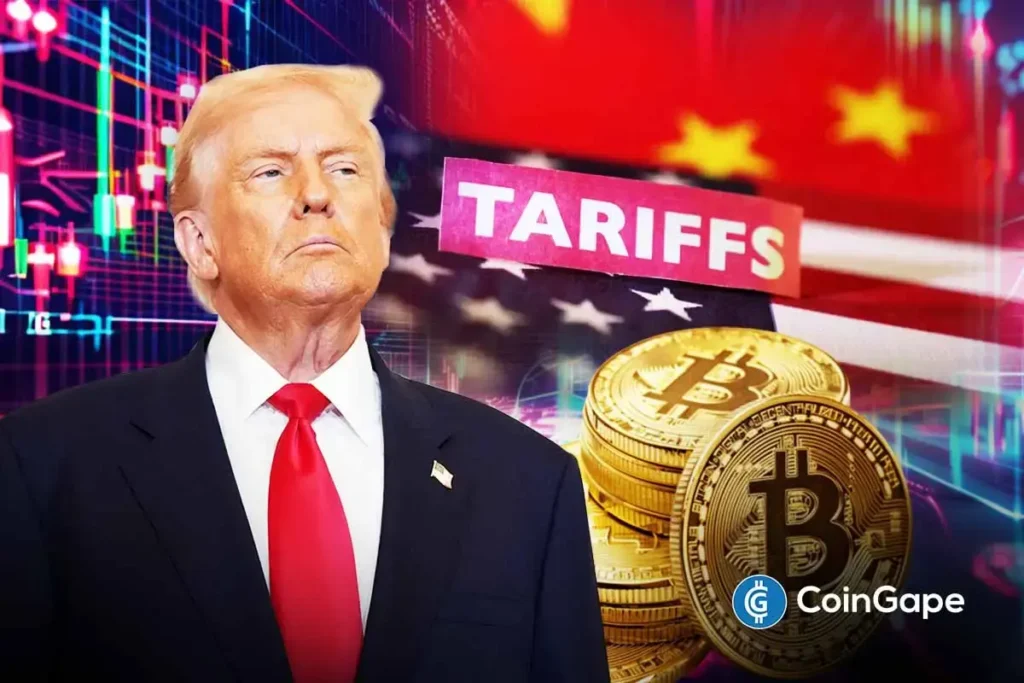The White House Prepares for Supreme Court Ruling on Trump Tariffs: Implications for the Crypto Market
As the U.S. Supreme Court prepares to make a critical decision regarding the Trump-era tariffs, the White House is actively exploring fallback strategies in the event of an unfavorable ruling. This impending legal outcome has significant implications for various sectors, including the rapidly evolving cryptocurrency market, where traders speculate on the potential consequences. Recent data from Polymarket reveals that confidence in the tariffs’ legality is dwindling, which has sparked bullish sentiments among crypto traders.
White House’s Strategic Planning: Alternatives to Trump Tariffs
A Bloomberg report indicates that the Trump administration is working diligently on alternative strategies to replace the existing tariffs should the Supreme Court find them unlawful. The Commerce Department and the Office of the U.S. Trade Representative are collaborating to assess Plan B options. These preparations highlight the possibility of rapid adjustments within U.S. trade policy, underscoring the administration’s urgent need to maintain control over economic measures.
The legal landscape for these tariffs is fraught with challenges. The Trump administration asserts that its authority to impose tariffs is grounded in the International Emergency Economic Powers Act of 1977 (IEEPA). However, lower court rulings have deemed many of these tariffs unlawful, placing the final decision in the hands of the Supreme Court. This uncertainty creates a precarious situation for traders and investors, particularly within the dynamic crypto market.
Legal Authority and Implications of Alternative Tariff Measures
In its pursuit of alternatives, the Trump administration is considering levies imposed under Sections 301 and 122 of the Trade Act, which provide the president with unilateral authority to impose duties. However, these alternative measures come with inherent risks. They might be slower to implement or constrained in scope compared to the expansive powers that the administration has asserted so far, raising questions about their ultimate effectiveness.
Furthermore, the legal foundation for these alternative tariffs could also face challenges. Critics may argue about their validity, mirroring the ongoing disputes surrounding the existing tariffs. This climate of legal uncertainty could contribute to heightened market volatility, affecting not only traditional sectors but also the burgeoning crypto landscape.
The Impact of Tariffs on the Crypto Market
Tariffs have been a focal point in the cryptocurrency market, particularly since President Trump announced his country-based tariffs on April 2, 2023, which he labeled ‘Liberation Day.’ The administration’s threats of imposing tariffs of up to 150% on China have had far-reaching implications for market sentiment. This aggressive stance led to a temporary one-year trade truce between the two countries, showcasing how tariffs can dramatically influence geopolitical and economic landscapes.
Market dynamics are fluid, and reactions to tariff sentiments can create ripples in the crypto sector. Traders are particularly sensitive to shifts in trade policies and market forecasts, as these can significantly impact trading strategies. The anticipation surrounding the Supreme Court’s ruling has led to an environment of speculation and increased trading activity within crypto exchanges.
Crypto Traders Bet on Unfavorable Rulings Against Tariffs
Amid this uncertainty, crypto traders are actively betting through platforms like Polymarket, which indicates a prevailing belief that the Supreme Court may rule against the Trump tariffs. By analyzing current data, it is evident that there is only a 24% chance that the Court will rule in favor of the president—a dramatic drop from nearly 60% previously. This pessimism stems, in part, from reports suggesting that the justices have expressed skepticism regarding the legality of the tariffs.
Such betting patterns underscore a potential shift in market sentiment, with traders aligning their positions based on projected legal outcomes. This speculation reflects the growing influence of legal and political factors on the cryptocurrency market, indicating how intertwined these sectors have become.
Supreme Court’s Role and Market Reactions
The Supreme Court’s ruling on the Trump tariffs is highly anticipated, but a set date for the ruling has not yet been established. The justices have the option to uphold the tariffs, declare them unlawful, or issue a mixed ruling that maintains certain aspects while striking down others. The uncertainty surrounding the ruling results in considerable speculation within financial markets, particularly as traders navigate the complexities of both legal and economic factors.
Depending on the ruling, the market could see significant price movements, especially within cryptocurrencies, which are notoriously volatile. A ruling against the tariffs may prompt bullish sentiments among traders, encouraging more investment in cryptocurrencies as the potential risks associated with trade policy could be alleviated.
Conclusion: Navigating an Uncertain Economic Landscape
As the White House prepares for a potential Supreme Court ruling that could redefine the landscape of U.S. trade policy, the implications for the cryptocurrency market are substantial. The ongoing speculation, coupled with the administration’s exploration of fallback strategies, creates a climate of uncertainty that traders must navigate carefully.
In light of the current sentiment on platforms like Polymarket, the decline in predicted support for the tariffs reflects broader market apprehensions regarding legal uncertainties. As traders position themselves for potential outcomes, understanding the implications of these tariffs on both traditional and cryptocurrency markets becomes increasingly essential. The interplay between legal decisions and market sentiment will undoubtedly shape the future of trade policy as well as the evolving role of cryptocurrencies in today’s economy.


